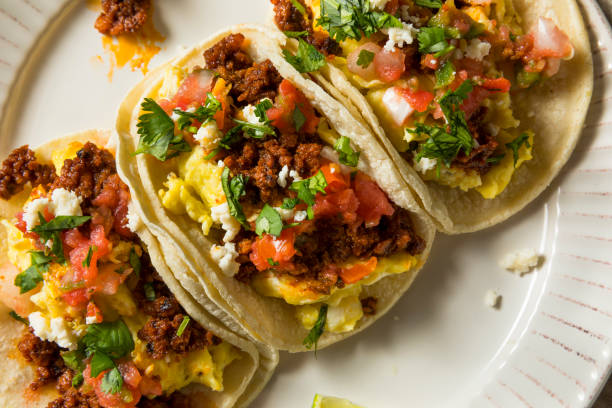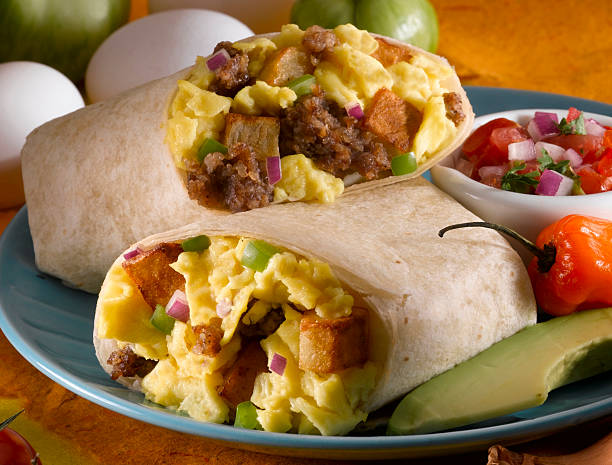Breakfast burritos are a popular breakfast option for many people. They are a convenient and satisfying way to start the day, and can be filled with a variety of ingredients to suit different tastes and dietary needs. However, one question that many people have when it comes to breakfast burritos is how many calories they contain.
Calories are a measure of the amount of energy that food contains. They are important to consider when trying to maintain a healthy diet, as consuming too many calories can lead to weight gain and other health problems. In order to determine the number of calories in a breakfast burrito, it is necessary to look at the ingredients that are typically used to make them.
The eggs in a breakfast burrito also add to the calorie count. A large egg has around 70 calories, and a burrito typically contains at least 2 eggs. Cheese is another ingredient that can add significant calories to a breakfast burrito. A single ounce of cheese can have around 100 calories.
The base of a breakfast burrito is typically a flour tortilla, which can range in size from small to large. A small flour tortilla typically contains around 100-120 calories, while a large tortilla can contain up to 200 calories or more. This means that the tortilla itself can account for a significant portion of the total calorie content of a breakfast burrito.
The next major ingredient in a breakfast burrito is typically some form of protein, such as eggs, sausage, bacon, or ground beef. Eggs are a relatively low-calorie protein source, with around 70 calories per large egg. Sausage and bacon, on the other hand, are higher in calories, with around 80-100 calories per ounce. Ground beef can also be high in calories, with around 150-200 calories per 4 ounces.
In addition to protein, breakfast burritos often include other ingredients such as cheese, beans, and vegetables. Cheese is high in calories, with around 100 calories per ounce. Beans are a good source of protein and fiber, but can also be high in calories, with around 120-150 calories per half cup. Vegetables such as peppers, onions, and spinach are relatively low in calories, but can add flavor and nutrition to the burrito.
The fillings in a breakfast burrito can also have a big impact on the calorie count. Meats like sausage and bacon can have over 100 calories per serving, while avocado can have around 50 calories per ounce.
Overall, the number of calories in a breakfast burrito can vary widely depending on the ingredients that are used to make it. A small breakfast burrito made with a small tortilla, eggs, and vegetables may contain around 300-350 calories. On the other hand, a large breakfast burrito made with a large tortilla, ground beef, cheese, and beans can contain 600 calories or more.
It’s important to note that while calories are important to consider when trying to maintain a healthy diet, it’s also important to look at other nutritional factors such as protein, fiber, vitamins, and minerals. A breakfast burrito can provide a good balance of these nutrients, as well as satisfying hunger and providing energy for the day ahead.
In conclusion, a breakfast burrito can be a convenient and satisfying way to start the day, but the number of calories it contains can vary widely depending on the ingredients used to make it. A small breakfast burrito made with a small tortilla, eggs, and vegetables may contain around 300-350 calories, while a large breakfast burrito made with a large tortilla, ground beef, cheese, and beans can contain 600 calories or more. It’s important to consider the calorie content of a breakfast burrito, but also to look at other nutritional factors such as protein, fiber, vitamins, and minerals.

 Home
Home Health
Health Diet & Nutrition
Diet & Nutrition Living Well
Living Well More
More












